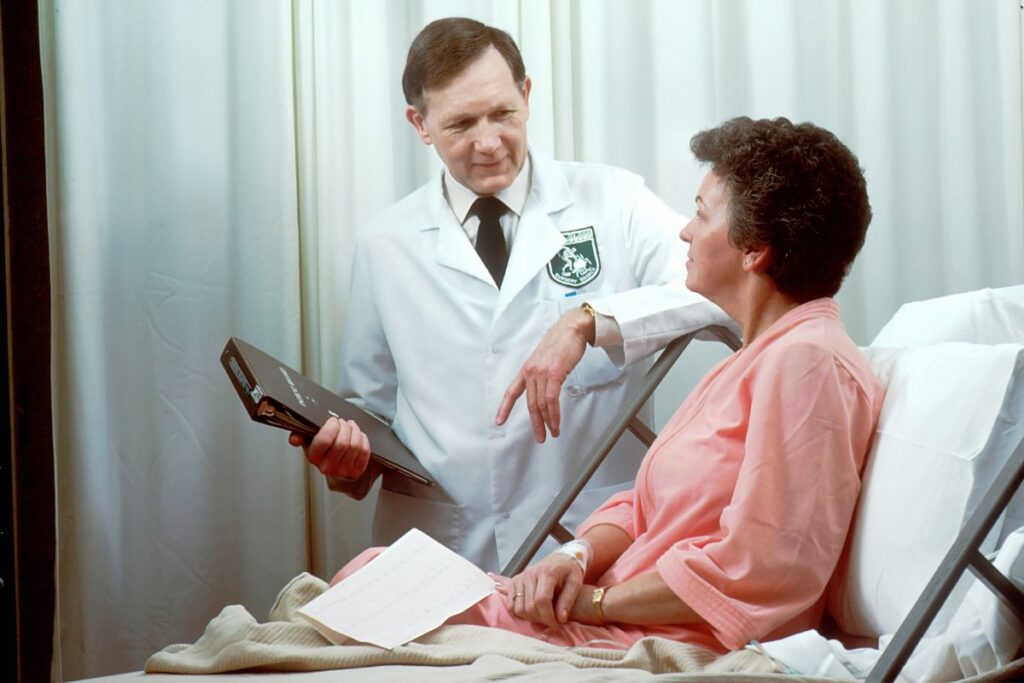A delayed cancer diagnosis can have severe and sometimes fatal consequences. Early detection is crucial for effective treatment, and any delay can significantly reduce the chances of a positive outcome.
If you or a loved one has suffered due to a delayed cancer diagnosis, understanding the evidence required to support a cancer misdiagnosis claim is essential. This guide will walk you through the necessary steps and types of evidence needed to substantiate your claim.
Understanding Cancer Negligence
Cancer negligence occurs when a healthcare professional fails to diagnose cancer in a timely manner, leading to a delay in treatment. This can result from:

- Misinterpreting test results
- Failing to order appropriate tests
- Ignoring or dismissing symptoms
- Inadequate follow-up on abnormal test results
When such negligence occurs, it can form the basis of a cancer misdiagnosis claim. To succeed, you must prove that the delay in diagnosis directly impacted your health and treatment outcomes.
Essential Evidence for a Cancer Misdiagnosis Claim
Supporting a claim for a delayed cancer diagnosis involves gathering comprehensive evidence. This evidence must demonstrate that the healthcare provider’s negligence led to the delay and subsequent harm. Here are the key types of evidence required:
Medical records are the foundation of any cancer negligence claim. These records provide a detailed history of your medical condition, treatments, and interactions with healthcare providers. Key documents include:

- Doctor’s notes: Documenting symptoms, diagnoses, and treatment plans.
- Test results: Blood tests, imaging studies (X-rays, CT scans, MRIs), biopsies, and other diagnostic tests.
- Referral records: Documentation of referrals to specialists or for further testing.
- Treatment history: Records of all treatments received, including medications, surgeries, and other interventions.
Creating a detailed timeline of events is crucial. This timeline should include:
- Initial symptoms: When you first noticed symptoms and reported them to your healthcare provider.
- Appointments and consultations: Dates and details of all medical appointments and consultations.
- Diagnostic tests: Dates and results of all diagnostic tests conducted.
- Treatment delays: Any gaps or delays in receiving tests, referrals, or treatment.
Expert medical opinions are critical in establishing that the delay in diagnosis was due to negligence. An independent medical expert can review your case and provide an opinion on:
- Standard of care: Whether the healthcare provider met the accepted standard of care.
- Impact of delay: How the delay in diagnosis affected your prognosis and treatment options.
- Alternative outcomes: What might have occurred if the diagnosis had been made promptly.
Witness statements can provide additional support for your claim. These statements can come from:
- Family members or caregivers: Describing the impact of the delay on your health and daily life.
- Healthcare professionals: Offering insights into the standard of care and potential negligence.
- Colleagues or employers: Documenting how the delay affected your ability to work and perform daily activities.
Maintaining a personal journal can be a powerful tool in your cancer misdiagnosis claim. Document your symptoms, appointments, treatments, and how the delay has impacted your physical and emotional well-being. This journal can provide a detailed account of your experience and help corroborate other evidence.
Financial records are necessary to demonstrate the economic impact of the delayed diagnosis. These records should include:
- Medical bills: All costs related to diagnosis, treatment, and ongoing care.
- Travel expenses: Costs incurred for traveling to and from medical appointments.
- Lost wages: Documentation of any income lost due to your inability to work.
- Future expenses: Estimates of future medical costs and ongoing care needs.
Steps to Take When Pursuing a Cancer Misdiagnosis Claim
If you believe you have a case for a cancer negligence claim, follow these steps to strengthen your case:

1. Consult a Specialist Solicitor
Engage a solicitor who specializes in medical negligence and cancer misdiagnosis claims. They can provide expert advice, assess the viability of your claim, and guide you through the legal process.
Collect all relevant evidence, including medical records, test results, and witness statements. Your solicitor can assist in obtaining and organizing this information.
Your solicitor will arrange for independent medical experts to review your case and provide opinions on the standard of care and the impact of the delay.
Your solicitor will help you file the claim with the appropriate legal authorities. This involves submitting all necessary documentation and evidence to support your case.
Most cancer misdiagnosis claims are settled out of court through negotiation. Your solicitor will negotiate with the responsible party’s insurance company to reach a fair settlement. If an agreement cannot be reached, the case may proceed to court.
If your case goes to court, your solicitor will represent you, presenting the evidence and arguing your case. While this process can be lengthy, a court ruling can often result in a higher compensation award.
Importance of Timely Action
In the UK, medical negligence claims generally have a time limit of three years from the date of the incident or from when you first became aware of the negligence. Acting promptly is crucial to ensure you do not miss this deadline. Early action also helps preserve crucial evidence and strengthens your case.
Conclusion
Proving a cancer negligence claim requires a comprehensive and methodical approach. Gathering the necessary evidence, including medical records, expert opinions, and personal documentation, is essential for building a strong case. If you or a loved one has suffered due to a delayed cancer diagnosis, understanding the evidence needed and following the outlined steps can significantly increase your chances of securing the compensation you deserve. For expert legal assistance, consider consulting with the Medical Negligence Team who specialize in medical negligence and cancer misdiagnosis claims. Their expertise can guide you through the complexities of the legal process and help achieve a fair outcome.
Images courtesy of unsplash.com and pexels.com












